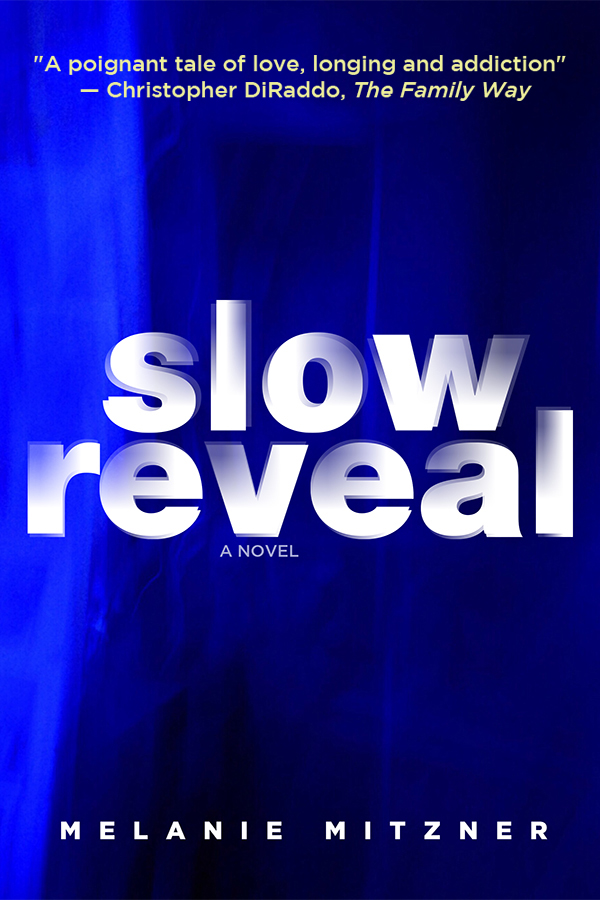Slow Reveal
By Melanie Mitzner
Inanna Publications
304 pages, $22.95
Melanie Mitzner’s ambitious novel, Slow Reveal, grapples with questions of desire, intimacy, and the intrinsic human drive to create art through the unraveling of a dysfunctional, wealthy family of artists in 1990s New York. A sudden death in the family and the revelation of a decade-long queer affair force the Kanes to confront a generational struggle with addiction and the strength of the bonds that hold them together.
True to its name, Slow Reveal is glacial and all-encompassing in its pacing and narration. While the novel’s events span less than a year, its omniscient third-person narration lingers, moving from parent to daughter to lover, even outwards to uncles or aunts, as if to echo the wake of familial grief and disbelief. This expansiveness is bolstered by Mitzner’s wry descriptions of both fictitious and historical art installations: “I had time to finish two books. Like How to Read an Unwritten Language—totally amazing. All about madness, madness in the family, the legacy it leaves behind.” These asides ground the characters as believable artists within a self-referential media culture without making the novel inaccessible to non-artists. In this broad view, the parallels that Mitzner highlights between the Kane parents and their daughters—similar addictions, bad reviews from the same art critic that ruined their father’s career—give Slow Reveal a gradual, tragic inevitability.
Unfortunately, overlaboured prose, stilted dialogue, and unexamined racial stereotypes obstruct a piercing story of repeated familial struggles with addiction and the creative process. Even the novel’s depictions of addiction and mental health lack nuance and depth, as is the case with one character’s institutionalization in “Belle Mar,” an overt homage to NYC’s infamous Bellevue Public Hospital. The novel adheres strictly to the limited mental health terminology of the early ‘90s, but then never fully steps into the implication of queer survival at the near-peak of the AIDS endemic as a reader might expect. Its sparse references frame the endemic—deaths which would peak in the US two years later in 1995—as if it were already over.
Ultimately, I found myself frustrated by the missed opportunities in Slow Reveal. While escapist queer historical fiction should—and does—exist, it’s hard to argue that was Mitzner’s intention. The interdependencies between love, addiction, and the creative process certainly become easier to discuss in the demonizing terminology of the 1990s, but what Slow Reveal gains in thematic relevance through inconsistent historicity, it loses in emotional complexity. This book might be good for readers with more patience, but for those like me, I would recommend steering clear.
—Moe Kirkpatrick














